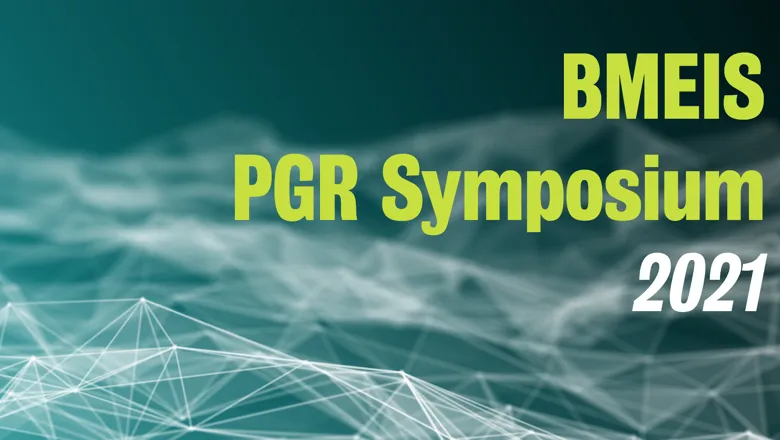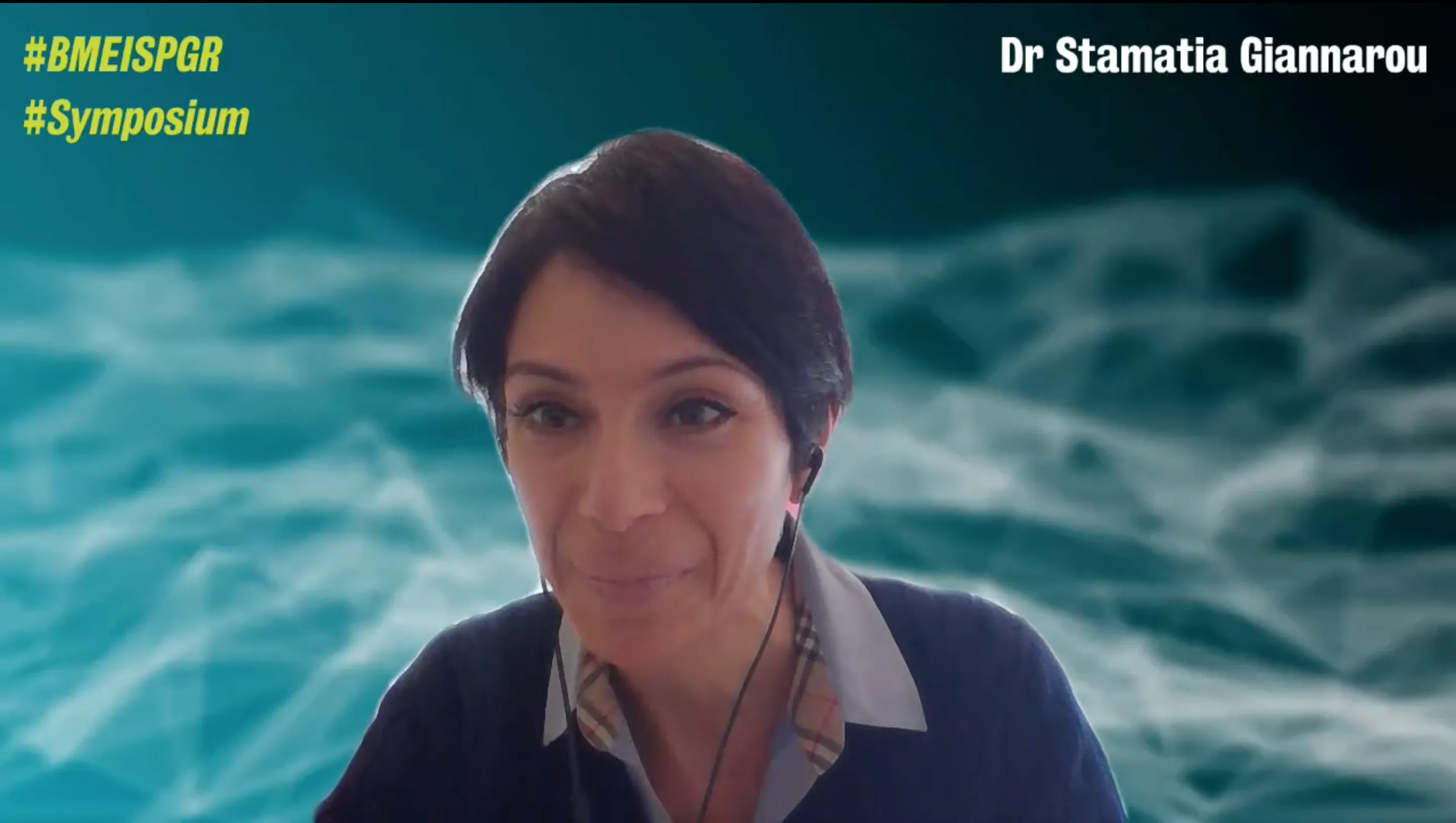It was important for us to have a line-up of speakers who came from different backgrounds and represented the research of our audience at the School of Biomedical Engineering & Imaging Sciences. The diversity of the panels lead to fruitful discussions, with each speaker bringing unique and valuable insights to the table.
Nadia Chaher, member of the 2021 BMEIS PGR Symposium organising committee
08 July 2021
2021 BMEIS Postgraduate Research Symposium: biomedical engineering & imaging sciences research showcased at student-led event
The School of Biomedical Engineering & Imaging Sciences held its annual Postgraduate Research (PGR) Symposium on 23 June for an online audience of 150 people.

Organised by a student-led committee, the event included presentations by 32 postgraduate research students from the School, as well as a keynote speech, a panel discussion and a debate.
Professor Sebastien Ourselin, Head of the School of Biomedical Engineering & Imaging Sciences said: “This is the second consecutive virtual symposium we’ve been delivering. It is a very impressive effort, showing how we’ve been able to take advantage of the virtual conference environment.”
The diverse programme featured 23 poster pitches delivered in two streams, focused on Imaging Chemistry and Biology and Biomedical Engineering and Artificial Intelligence, respectively. The students submitting the nine highest-ranked abstracts had been invited to give a series of three-minute talks and thesis presentations.
Seven prizes were awarded among the student presenters. Logan Williams received the Best Three-minute Thesis Presentation award for his research entitled Structural and functional cortical asymmetry in the Developing Human Connectome Project and Ahmed Qureshi was a runner-up with his work on Left Atrial Appendage Morphology Impacts Thrombus Formation Risks in Multi-Physics Atrial Models. The Best Three-minute Oral Presentation award was given to Lydia Smith for her talk on Optimisation of the chicken chorioallantonic membrane for PET imaging.
Lydia said: “As part of my project, I am researching a new preclinical model that can be a potential alternative to the use of mice in the development of PET tracers. I was excited to share my recent results with the School and was over the moon to have won a prize as there were so many excellent talks!”
Johannes Steinweg (Fetal blood flow assessment in clinical practice using whole heart 4D cine MRI) and Reuben Dorant (Inter Extreme Points Geodesics for End-to-End Weakly Supervised Image Segmentation) won the Best Poster Prize award in each stream, with runners-up Jessica Hopson (Pre-training and Transfer Learning on Reducing Training Data Needs and Improving Automated Clinical Assessments of PET Image Quality) and Yannick Brackenier (Motion-corrected brain MRI incorporating pose dependent B0 fields).
The Symposium’s keynote speech was delivered by Dr Stamatia Giannarou from Imperial College London. Dr Giannarou’s talk focused on the intraoperative vision system she is developing, which improves the efficacy and safety of tumour resections.

For the first time, the programme included a debate, in which renowned academics such as Dr Yipeng Hu from UCL, Prof Jayashree Kalpathy-Cramer from Massachusetts General Hospital and Harvard Medical School and Dr Michael Ebner from King’s School of Biomedical Engineering & Imaging Sciences shared their perspectives on the issue.
The event ended with a panel discussion on Imaging biomarkers of the past, present and future, including interventions by Prof Peter Caravan, Massachusetts General Hospital and at Harvard Medical School, Prof Nerissa Viola, Wayne State University and Dr Patricia Ribeiro, Washington University in St. Louis.

